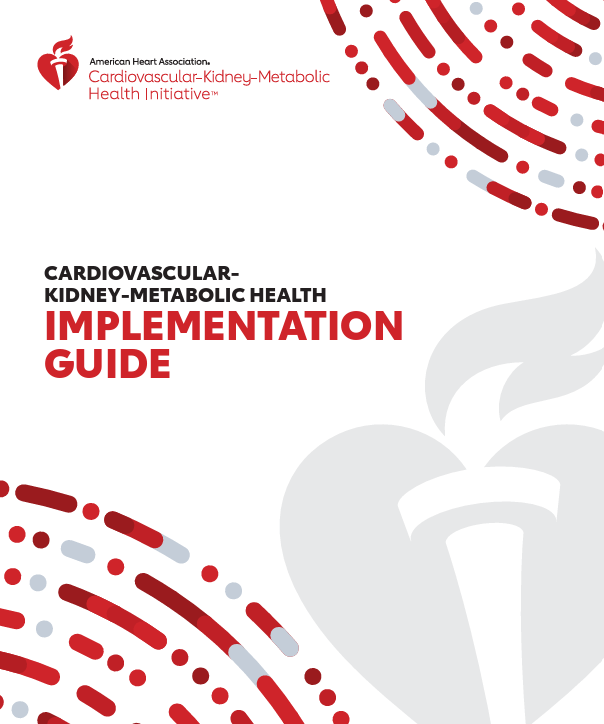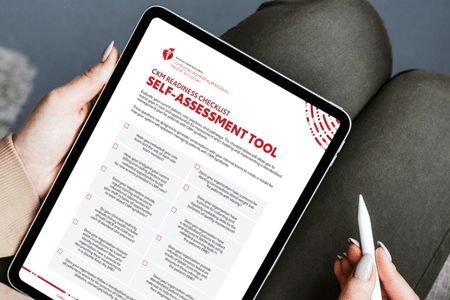Are you adhering to the latest in evidence-based CKM care?

1 in 3 US adults have one or more risk factors that contribute to cardiovascular disease, kidney disease and/or metabolic disorders. This initiative aims to support health systems, providers and patients in CKM care.
About the initiative
Use this implementation guide to:

Conduct a self-assessment of your CKM care readiness
Take a one-page assessment to understand how your processes compare.
Adopt interdisciplinary care practices
The CKM syndrome model provides a new framework for disease progression, emphasizing the importance of interdisciplinary care.

Learn from CKM patient case studies
Explore real-world CKM case studies that highlight patient-centered care models and practical strategies for treating CKM Syndrome.Ready to do more for CKM patients?
Become a CKM Health Groundbreaker Site
150 sites across the US will be selected to participate in this clinical practice implementation initiative. Aptly named, this group of sites will learn to forge new connections across care disciplines and adopt a model of care that better aligns for patients with CKM.
Participate in CKM Certification Standards Public Call for Comment
CKM Center Certification sets a global standard for care—closing gaps and reducing variations in care. Review the current proposed standards and share your comments to help shape requirements and influence national standards being developed.Leverage PREVENT™ Online Calculator
Integrate the Predicting Risk of CVD EVENTs Calculator into your care practices for primary prevention patients between the ages of 30-79 years.Additional Resources Related to CKM Syndrome
Stay Up To Date on CKM Health Initiative News
Sign up to receive more information on this fast-breaking new initiative. With more tools and resources debuting regularly, you won’t want to miss a beat.American Heart Association Cardiovascular-Kidney-Metabolic Health Initiative
More than 89 million adults in the U.S. are at risk for or are living with cardio metabolic disease. Recent science shows that cardio kidney disease and cardiometabolic disease are interrelated, suggesting they should be viewed together as cardio kidney metabolic disease. A holistic, person-centered approach to cardiovascular-kidney-metabolic (CKM) syndrome is essential, as it aligns guidelines with real-life experiences of patients and healthcare professionals. Controlling four of Life’s Essential 8 — weight, blood pressure, lipids, and blood glucose — improves cardiovascular health and reduces the risk of heart disease, stroke, metabolic disorders, and kidney disease.

Founding Sponsors
.png?sc_lang=en)
Supporting Sponsors

Champion Sponsor

American Heart Association’s Cardiovascular-Kidney-Metabolic Health Initiative is made possible by Founding Sponsors Novo Nordisk and Boehringer Ingelheim, Supporting Sponsors Novartis Pharmaceuticals and Bayer, and Champion Sponsor DaVita.
Cardiovascular-Kidney-Metabolic Health Initiative Goals (Launched July 2024):
- Reach 265,000 patients across 150 health care organizations in 15 markets.
- Integrate CKMH metrics into existing Get With The Guidelines® and outpatient data registries.
- Develop a scalable, patient-centered certification framework.
- Establish a CKM recognition program for providers and health systems.
- Increase screening for social determinants of health and incorporate community health workers and social workers into care teams.

